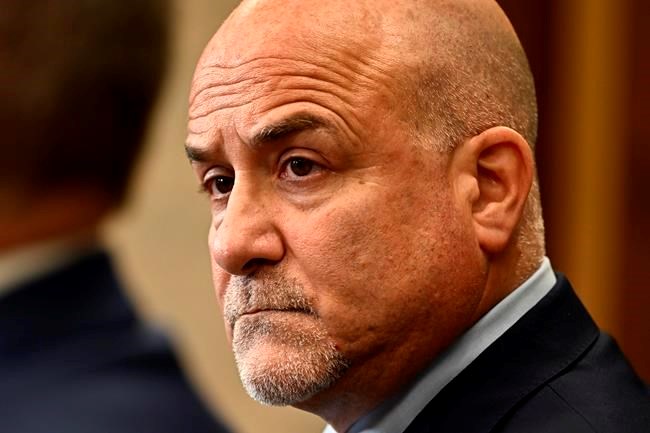WASHINGTON — Canada's budget watchdog is taking a second look at Ottawa's new tax on underused housing that critics hope will lead to a last-minute reprieve for U.S. cottage owners.
The Parliamentary Budget Office has agreed to review its initial 2022 analysis of the measure in response to a request from a group of Conservative MPs led by Tony Baldinelli, who has represented the riding of Niagara Falls since 2019.
Originally intended to ease big-city housing prices, the impacts of the tax "are catching many Canadian and foreign property owners by surprise in Canada's rural and agricultural areas," the group wrote to the office earlier this month.
In rural communities across the country, some farmers and their families own multiple properties in order to house agricultural workers, the letter continues.
"Meanwhile, in border communities like Fort Erie and Port Colborne, many U.S. residents have owned properties in Canada for decades — and in some cases, families have owned properties for more than a century," it reads.
"These properties in these rural, remote, and tourism locations are not the reason why Canada is facing a housing crisis in major urban centres today."
It's that latter concern that's been bothering Rep. Brian Higgins (D-N.Y.) ever since the federal Liberal government introduced the measure in its 2021 budget as part of a strategy to discourage speculative overseas investment in Canadian real estate.
Ever since, Higgins said he's been fielding complaints from constituents in his western New York district, which includes Buffalo and Niagara Falls on the U.S. side, whose families own vacation properties north of the border.
"When I was up in Canada recently for a couple of days, I was at a supermarket and just noticed ... half the cars going into the grocery store had American plates," Higgins said in a recent interview.
"It just goes to show you that they're net contributors to the economy."
Higgins, who testified on the issue last month before the House of Commons international trade committee, said he met several times with Baldinelli before he and other committee members took up the cause on Parliament Hill.
"At least, you know, there's hopeful signs that people are beginning — on both sides of the border — recognize how ineffective this tax is as it relates to properties outside larger urban areas," he said.
Some property owners in places like Fort Erie, Ont., are currently required to pay the levy while neighbours located less than 450 metres away are exempt because their property is within the municipality, Baldinelli told the committee last month.
During his testimony, Fort Erie Mayor Wayne Redekop said about 900 residences in the area are owned by U.S. familes, some dating back generations. He called the community a "binational region" where people are constantly moving back and forth.
Their mobility "is a testament to the closest of relationships between the people of our two countries, the greatest friends, allies and trading partners in the world. They are the living symbols of that relationship," Redekop said.
He fears the new tax could motivate U.S. owners to sell, which would likely attract investment not from within Fort Erie, but from deep-pocketed commercial developers elsewhere in Canada, he added.
"There could not be a worse result — the true example of an unintended consequence."
Higgins has long championed a comprehensive overhaul of how Canada and the U.S. manage their respective sides of the their shared border, advocating a more integrated approach that would mitigate the need for "incremental" problems.
Case in point: New York Republican congresswoman Rep. Elise Stefanik and Democratic counterpart Rep. Greg Stanton (D-Ariz.) introduced yet another legislative attempt earlier this month to let Canadian snowbirds stay a little longer in the U.S.
The Canadian Snowbird Visa Act, if passed, would extend the maximum stay for Canadians over 50 who own or rent property in the U.S. to nearly eight months, up from the current six.
"Our neighbors to the north provide more visits to the United States than any other country, and they are critically important to North Country tourism and industry," Stefanik said in a statement.
"Providing Canadians who own homes and property in the United States with extra time to visit and boost our economy will help revive Canadian tourism to the United States after an unprecedented closure of the northern border."
Snowbirds spend more than US$1 billion in Arizona each year, Stanton added. Letting them stay longer "is good for local businesses, and means their dollars are reinvested here in our communities."
It's only the latest effort in Congress to encourage Canadians to spend more time — and, naturally, money — in the U.S. during their winter stays. Numerous versions of the legislation have been introduced since at least 2016, but few got very far.
Meanwhile, most of the calls for a more integrated approach to the Canada-U.S. border following the COVID-19 pandemic have so far gone largely unheeded.
The piecemeal approach means introducing bills that are forever at the mercy of the often unpredictable whims of Congress, Higgins said.
"You're dealing with stuff on an incremental basis because you're not dealing with it on a more comprehensive basis," he said. Stefanik's northeastern corner of the state attracts seasonal Canadians to the Adirondack Mountains and Lake Champlain areas, he added.
"She has the advantage of dealing with the incremental problem, so as to show in real time that an effort is being made to address their frustrations," Higgins said.
"But at the same time, it's not addressing the larger problem. It's just an excuse. It's a management mess, and nobody's happy with it."
This report by The Canadian Press was first published July 20, 2023.
James McCarten, The Canadian Press



